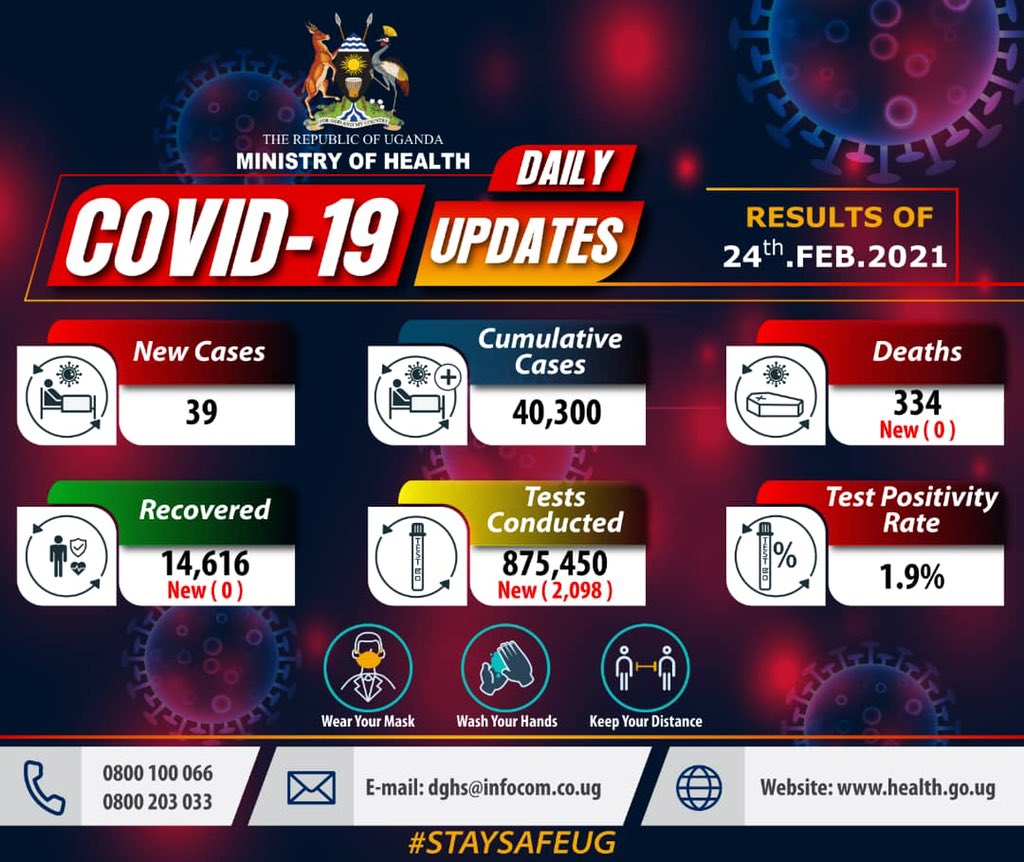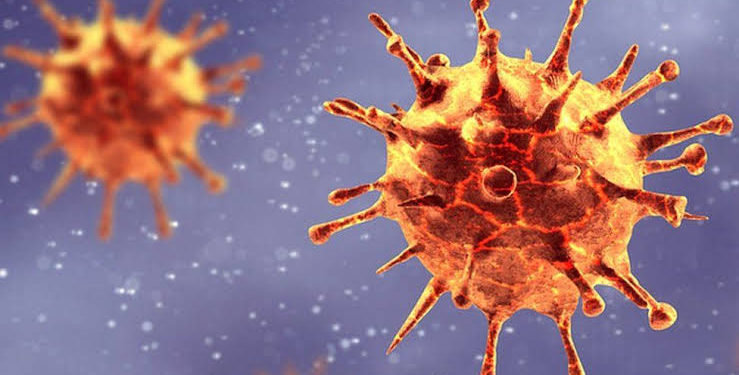By Walter Mwesigye
Ugandan scientists are critically examining a new dominant variant of COVID 19 in the countryside as the discovery could put Uganda’s moribund hospitals to the sword.
The Executive Director of the Uganda Virus Research Institute (UVRI), Professor Pontiano Kaleebu, recently revealed that a team of scientists is now analysing the characteristics of the variant he described as dominant.
“The first report we gave the viruses we saw was very similar to where the individuals were coming from because the initial infections were mostly in travellers. We put the viruses into groups A, B and sub lineages, but of recent, we see a dominance of one variant,” he revealed.
Multiple variants of the virus that causes COVID-19 have been documented globally during this pandemic. Information about the characteristics of these variants is rapidly emerging.
A new strain first identified in South Africa, the United Kingdom and Brazil continues to crop up across the globe, threatening to further strain overburdened health care systems just as vaccines are rolling out worldwide.
“What is strange with this variant is that there were many mutations at the same time and some of these mutations were in the spike protein and they’re leading to a spike in transmission and for South Africa leading to non-sensitivity to the vaccine,” said Prof Kaleebu.

Uganda has been lauded for its effort to combat the Covid pandemic. However, scientists are not sitting on their laurels and are now conducting clinical and laboratory studies about the new variant.
Israel’s Coronavirus czar Nachman Ash recently revealed that a coronavirus variant originating in Uganda has been detected in Israel, without elaborating on the circumstances.
Israel’s main airport has been mostly shut since late January to keep virus variants at bay.
In a briefing to reporters, Ash warns the “pandemic is not behind us,” and warns Israelis to refrain from large gatherings during this week’s Purim holiday.
“You may have prayer services” in accordance with the health rules, he says, “but large meals… and parties — are totally forbidden. They are a danger to the health of us all.
Ugandan scientists who have built a reputation for combating deadly pandemics such as the Ebola Haemorrhagic Fever and Marburg are studying the news strain, its potential to rapidly spread and whether it could cause more severe illness. They also want to be able to discern whether currently authorised vaccines can combat the new strain.
In February, South Africa put its rollout of the Oxford-AstraZeneca vaccine on hold after a study showed “disappointing” results against its new Covid variant.
Up to one and half million doses of the jab bought for healthcare workers were rendered useless.
The news of the halt in South Africa has since raised questions about the efficacy of the AstraZeneca vaccine, which is largely available for many developing countries.
Scientists say the variant accounts for 90% of new Covid cases in South Africa.
The trial, involving some 2,000 people, found that the vaccine offered “minimal protection” against mild and moderate cases.

As the new variant raises the spectre of despair, Uganda has since relaxed some the stringent lockdown measures it adopted in March 2020. Movement at the borders is unhindered, as neighbouring countries have ramped up their ability to test truck drivers before they can cross the border points.
These truck drivers are amongst a category that contributed immensely to the rise of COVID19 positive cases in Uganda.
Since March last year, Uganda has a cumulative 40,300 cases of covid19; 14,616 of those have recovered and 334 succumbed to the infection.
From the total 875,450 tests conducted, Wakiso, Kampala and the border districts have been the hotspots for transmission. According to studies from the Uganda Virus Research Institute (UVRI), the new variant in Uganda has been detected in Kampala, the country’s capital and busiest city.
“We didn’t expect this virus to mutate the way it is doing but at least the technology is there to adapt to the new variants that we have,” says Professor Kaleebu
MUTATION AND IMPACT
Viruses constantly change through mutation and new variants are expected to occur over time, some times new variants emerge and dissipate while others emerge and persist.
The virus that causes COVID19 is a type of coronavirus from a large type of viruses. Coronaviruses are named for the crown like spikes on their surfaces. Scientists monitor changes in the virus including changes to the spikes on the surface of the virus.
These studies including genetic analyses of the viruses are helping scientists understand how the changes might affect how it spreads and how those infected react.
Uganda intends to have up to 60% of its population vaccinated in order to build herd immunity. Several doses have been ordered including the COVAX facility and the African Union.
According to the Health minister, Dr. Jane Ruth Aceng, Uganda will continue to receive jabs from AstraZeneca for the population.
“We will still use the AstraZeneca vaccine; it is better to protect people than just to ignore. Uganda will receive the donations from the COVAX facility and we are still progressing with the purchase of 400,000 doses to cover for the initial vulnerable people,” Aceng said.
The World health Organisation (WHO) country representative Dr. Tegnen Woldermariam says the AstraZeneca vaccine is safe and efficacious for use.
“WHO has a pre-qualification system up to now, AstraZeneca the Sinovac and sinopharm have submitted an application for pre-qualification and fortunately, it is only the AstraZeneca of Serum Institute of India and South Korea are the ones who have fulfilled the documents of qualification.”
Currently, two vaccines are authorized and recommended to prevent COVID-19: the Pfizer-BioNTech and Morderna Covid19 vaccines. AstraZeneca, Janssen and Novavax vaccines are all in phase three trial.
Globally, 88,669,035 doses have been distributed and 66,464,947 doses have been administered. Nonetheless, the demand for the jabs is still high.
The Minister emphasizes protection from the infection and warns of a second wave. However, the global number of cases is falling. Uganda has moved from a triple digit figure for confirmed cases to as low as eight cases recently.
Members of the National Scientific Committee on COVID19 could not ably explain the drop in numbers.
“We anticipated that we would see a rise in the number of cases because of people coming together during elections and we see that has not happened, the reason why the cases are falling now could be due to seasonal variations,” says Dr. Wayengera Misaki the chairperson of the National Scientific Committee on COVID19.









